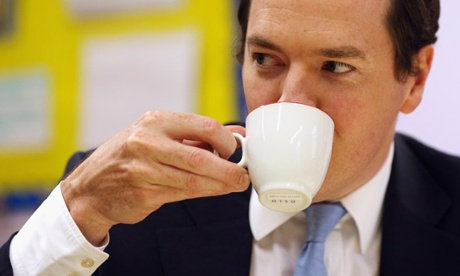The UK government was forced to borrow a peacetime record of £303bn to combat Covid-19 in the first full financial year of the crisis but the total was lower than originally feared, official figures have shown.
Despite a £28bn gap between state spending and tax receipts in March, the Office for National Statistics (ONS) said the deficit for the 2020-21 year was £24bn less than the £327bn pencilled in at the time of the budget by the Office for Budget Responsibility (OBR).
As a percentage of national output, borrowing in the year between April 2020 and March 2021 stood at 14.5% – the highest since the financial year ending in March 1946, a period that covered the final few months of the second world war.
Higher government spending was responsible for the bulk of the £246bn increase in borrowing compared with the previous year, although the ONS said tax receipts had also fallen. Government debt – borrowing that has accumulated over the years – stood at £2.14tn at the end of March, almost 98% of national income.
Isabel Stockton, a research economist at the Institute for Fiscal Studies thintank said the debt was perfectly manageable given the lowest interest rates in history but that the government could run into problems were borrowing costs to rise.
“While the most recent budget plans suggest a return to the government borrowing only to pay for investment spending by 2025–26 this depends on a swift recovery, big tax rises and very tight spending. There is a good chance that at least one of these will not happen,” Stockton added.
The ONS’s initial borrowing data will eventually be revised to take account of write-offs on loans to companies affected by the economic disruption caused by the pandemic. According to OBR estimates, these are on course to be just over £27bn.
Commenting on the figures, the OBR said the £303bn deficit was roughly double the previous annual record of £158bn set during the financial crisis of the late 2000s. “The surprise relative to our forecast is largely due to spending on pandemic-related programmes coming in below our downwardly revised forecast. Receipts were only modestly stronger than anticipated,” it said.
Borrowing in March alone was £28bn compared with £7bn in the same month a year ago. The ONS said it was the highest March figure since monthly records began in 1993.
Samuel Tombs, an economist at Pantheon Macro, said central government tax receipts for 2020-21 were, at £722.8bn, slightly higher than the OBR’s £718.6bn forecast, while central government spending was £11bn lower at £1,033bn.
“Government departments appear to have underspent relative to their allocated budgets to an even greater extent than normal, especially on public health,” he said.











